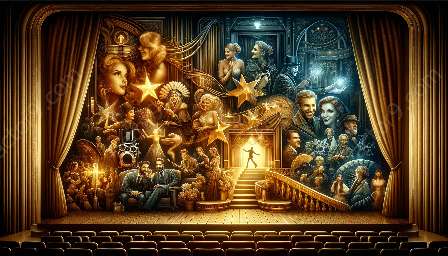Magicians have always fascinated audiences with their ability to deceive and entertain. However, the use of deception in magic performances raises ethical questions about honesty and integrity. How can magicians maintain ethical standards while captivating their audience with illusions? Let's explore the intersection of magic, ethics, and deception.
The Nature of Deception in Magic
Magic is fundamentally based on the art of deception. Magicians use sleight of hand, misdirection, and psychological manipulation to create illusions that seem impossible. The use of deception is inherent in the performance of magic, leading to a paradoxical ethical dilemma: how can magicians maintain honesty and integrity while deceiving their audience?
Transparency and Consent
One approach to addressing the ethical concerns of deception in magic is through transparency and consent. Magicians can maintain honesty by being transparent about the fact that their performances involve deception. By setting clear expectations with their audience, magicians can ensure that their use of illusion is understood as part of the performance, thus maintaining integrity while preserving the wonder of magic.
Respect for the Audience
Respecting the intelligence and curiosity of the audience is another key factor in maintaining honesty and integrity in magic performances. Magicians should strive to uplift and inspire their audience, rather than manipulating or exploiting their trust. By approaching their craft with a sense of responsibility towards their audience, magicians can uphold ethical standards while still captivating and entertaining.
Educational Component
Another way to align the ethics of magic with honesty and integrity is by incorporating an educational component into performances. By offering insights into the techniques and principles behind their illusions, magicians can demystify the art of deception and emphasize the distinction between entertainment and reality. This educational approach helps audiences appreciate the skill and artistry of magic while encouraging critical thinking.
Truth in Storytelling
Magicians can also maintain honesty and integrity by treating their performances as storytelling experiences. Just as authors use fiction to convey truths about the human experience, magicians use deception to evoke wonder and astonishment. By framing their acts as narratives and experiences, magicians can remain truthful in their intentions while utilizing the art of illusion.
Accountability and Professionalism
Professionalism and accountability are essential elements for magicians to maintain honesty and integrity. By adhering to ethical codes within the magic community and upholding high standards of conduct, magicians can earn the trust of their peers and audiences. This dedication to professional ethics underscores the responsibility magicians have in preserving the integrity of their craft.
Conclusion
In summary, the ethics of magic and illusion revolve around the nuanced balance between deception, honesty, and integrity. Magicians can maintain ethical standards by being transparent, respecting their audience, incorporating education, emphasizing storytelling, and upholding professionalism. By navigating this balance, magicians can continue to captivate and inspire audiences while upholding the ethical principles of their craft.


















